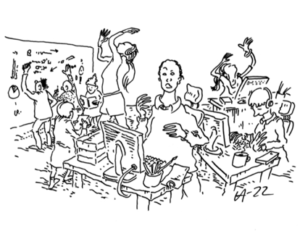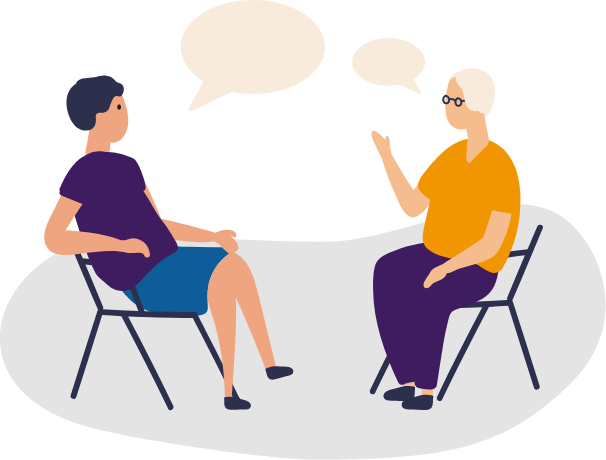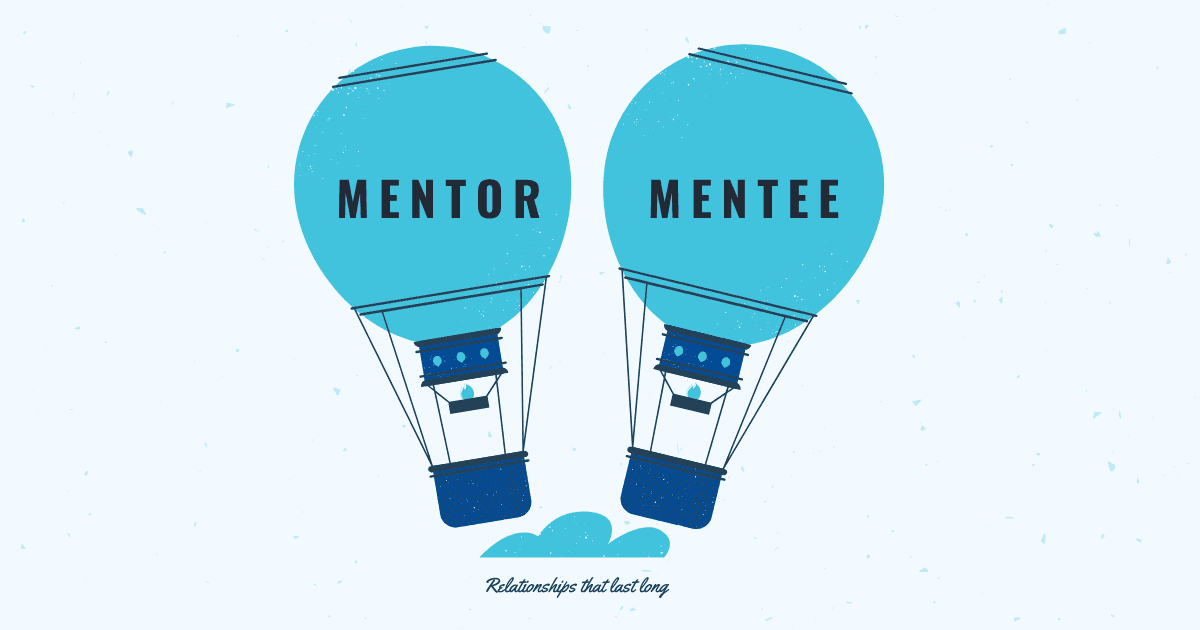Last year, we had a busy couple of months, with shortlistings for 3 awards, or more accurately, 2 awards and one act of community recognition. In my role as an autistic PhD student/advocate I was asked to be a guest on the Wow Show Roadshow Brighton. It’s taken a while (the people at Wow are busy, busy, busy), but the Podcast from that Roadshow is now available. I met some remarkable women that evening, and it is now a treasured memory. You can listen to the episode here. Unfortunately, my techy skills aren’t letting me link directly to the episode, so scroll on down to S3, Ep1.
Blog
HOW AUTISM DROVE AND CONTINUES TO DRIVE ME, With Joyce CoomberSewell
Combined Autism and ADHD Interview with Joyce CoomberSewell
Joyce recently did an interview with author and artist Jackie Schuld about autism and ADHD.
You can read the interview here.
In-Focus Interview November 2022
In-Focus interview with Joyce CoomberSewell from November 2022
Interview with Rory Lemon
Rory Lemon is an Osteopath and somatic health coach.
At 33 years old, Rory found out he was Dsylexic and before that, he really struggled with social anxiety, decision-making and verbal self-expression.
Since then, he has overcome these challenges and he made it his mission to help others substantiate their healthy habits and self-care beyond the treatment room.
Rory has recently created The Unique Learning Ability Show – An online summit looking at Learning Challenges: Top secrets to thrive with confidence, stability and productivity.
The show addresses challenges with learning, issues with neurodiversity and unhealthy habitual behaviours with a functional application called a Unique Learning Ability (ULA), using a fun and accessible conversational format.
He is curating 21 experts to impart their knowledge, talents and support, so that you can celebrate your unique talents, and learn how to speak up for what you need and feel valued.
Points of exploration:
- How to celebrate your unique talents
- Best known tips to manage the mind and emotions
- How to make self-fulfilling decisions in all situations
- How to speak up and feel valued
- 21 ways to perform at your best
So imagine if you could confidently do all this, without hiding or masking yourself!
The registration page is here!
Rory really believes there’s an easy way to personally develop, so this is what he wants to share with you in his summit.
Guest Blog: Love Across Neurotypes: the beauty in meeting halfway
Written by Amy Cramb

As an Autistic woman, relationships are rarely easy for me. I perceive, communicate, and express emotions very differently to non-autistic people. Due to these differences, it can be hard for me to empathise with the experiences of non-autistic people, and crucially, for them to empathise with my experiences. Dr Damian Milton, an Autistic academic, called this a “Double Empathy Problem.”
This problem begs the following question: Can Autistic people and non-autistic people thrive in relationships with one another, even though their experiences are often worlds apart? Oftentimes, the answer might truly be no.
Looking back on past friendships, romantic relationships, and general social experiences, I frequently felt the presence of an insurmountable ‘wall’ – I am on one side, the non-autistic people are on the other, and we just cannot get through to each other. Authentic connection fails in such circumstances.
It reached the point where I had given up on ever feeling true human connection and belonging. I found it too hard being consistently misunderstood and trapped on the lonely side of the wall. Then, out of nowhere, my now fiancé came along.
He is not Autistic, yet I am. Despite our differences, our relationship is thriving. The wall is gone, and we are deeply connected.
Why has this relationship gone so differently? I know exactly why: We meet each other halfway with compromise and unconditional acceptance.
Compromise
Unsurprisingly, my partner and I experience the world very differently. Therefore, we often have conflicting wants and needs, particularly in relation to sensory preferences, communication styles, and how we engage in our personal interests.
As one example, I am very passionate about the Autism advocacy work that I do from home. Each day when my partner came home from his full-time job, I would excitedly rush up to him and start info-dumping every detail of my work that day. Without interruption, I could go on for several hours unpacking the day’s events, what I had learned, and my plans for tomorrow. One day, my partner candidly told me that he loves my passion and learning about my day; however, it is overwhelming to be instantly bombarded with so much information after work. He is exhausted by this stage and needs down time to relax. So, what happened next?
We worked together to reach a compromise. When he comes home from work, I give him some space by making us both a hot beverage. We then drink our hot beverages together whilst I info-dump the main things that I am excited or anxious to talk about. Once our beverages are finished, we spend the remainder of the evening relaxing. (Well, he relaxes … I avidly research whatever it is I am interested in at the time.)
Engaging in this routine is great for both of us. For me, I can make sense of my whirling, excitable thoughts by info-dumping them to my partner.
It is a measured approach to info-dumping that feels guilt-free because there is a clear boundary of when to stop. For him, he gets to hear about my day (or tunes out, who knows?), and then enjoys the down time that he needs, and deserves, before his next workday.
There are two things worth highlighting from this example. First, we communicated clearly and openly about both of our needs, wants, and feelings. This open communication helped me to understand and empathise with him, and vice versa. Secondly, we were both open to adapting to the other’s needs. I wanted one thing, he wanted another, but we met somewhere in the middle.
Unconditional Acceptance
Compromising is one thing, but unconditional acceptance goes one step further. One can compromise in a relationship yet still reject the other person’s perspectives as inadequate, invalid, or wrong. Sadly, this kind of rejection is very common for Autistic individuals, myself included.
For most of my life, I have felt negatively judged or dismissed. Others seemingly struggled to see my experiences as valid.
I would try to meet halfway but was often left stranded there – confused and alone. As the philosopher Simone de Beauvoir put it, “No one would take me just as I was.”
So, you can imagine my surprise when my partner immediately embraced my quirks.
Fundamentally, he offers me unconditional acceptance by acknowledging, rather than judging or dismissing, my differences. In return, I accept and love him unconditionally even when I don’t always understand him.
Some examples of how we show each other unconditional acceptance are with phrases such as, “That doesn’t make any sense to me, but I am here for you regardless”, or “I can see you are struggling. Whilst I can’t understand why, I know you see things differently to me. How can I help?” Through thoughtful, supportive, and open dialogue, we put effort into accepting each other’s unique experiences as valid.
The Halfway Point
Relationships between Autistic people and non-autistic people don’t always thrive, as explained by Dr Milton’s Double Empathy Problem. The ‘wall’ exists, whereby Autistic and non-autistic people often cannot get through to each other. However, this separation in experiences is merely the starting point. If both sides work their way up the wall through compromise and acceptance, they can meet at the top – the halfway point – where true connection, understanding, and even love, can arise.
Amy Cramb is the Founder of Finding Autism.
Mofaux in Wonderland
A guest Blog from Angela Loynd
I’ve never been particularly good at writing. It’s not that I don’t have a wild imagination, far from it. Without the stress and anxiety (and dare I say ‘trauma’) that emerges from my youth in both the primary and secondary education setting, my brain can do amazing things. But writing them down on paper (or on my laptop) has always been difficult for me (you’ll see this in my LinkedIn posts which are always inevitably ‘edited’). Thank goodness for the modern technical tools that help us to succeed!
I was recently asked by a wonderful LinkedIn connection and fellow neurodiversity advocate (Joyce CoomberSewell) to write as a guest blogger on this site, a seemingly simple task for some, but whilst I was incredibly honoured, it filled me with fear, anxiety, and dread. Imposter syndrome had kicked in. What is that, I hear you ask? Impostor syndrome (IS) refers to ‘an internal experience of believing that you are not as competent as others perceive you to be… it has links to perfectionism and the social context’ (Cuncic, 2021).
Who would want to hear my story?
Why would they want to know? Why would they care? Why would it matter? All these questions suddenly swirled around, penetrating and invading the magical and creative space in my head. Then it hit me. All the work I’ve done over the past few years came into effect, the positive self-talk, the mission to help others like me, and the adolescents and young adults who are still finding or yet to find their own voice. If it only reaches one of you, this one is for you.
I write ‘micro-blogs’ I like to call them and share others’ wisdom almost daily on social media. I’m no expert, only in my own life. But I do believe in sharing what has worked for me, and I’m constantly learning every day from others, including my own Neurodivergent Adolescent and Young Adults (NDAYAs). I write about positive ND affirming topics, support strategies, #ndhumour, but I also share my stories of trauma, feelings of being lost, the constant searching through what I can only describe as ‘The Matrix’ we live in for answers to ‘Who am I’?
 We neurodivergent (ND) folx do this often, with a bag of tricks which generally includes our multitude of masks, strategies, and scaffolding techniques. However, statistics will show you that we have high rates of mental health comorbidity, social and financial inequity, experience workplace bullying and harassment, and relationship distress. I for one know full well the serious ramifications of workplace bullying, the breakdown in mental health, the tears, the pressure on my family, the struggle so real that I almost ended my life.
We neurodivergent (ND) folx do this often, with a bag of tricks which generally includes our multitude of masks, strategies, and scaffolding techniques. However, statistics will show you that we have high rates of mental health comorbidity, social and financial inequity, experience workplace bullying and harassment, and relationship distress. I for one know full well the serious ramifications of workplace bullying, the breakdown in mental health, the tears, the pressure on my family, the struggle so real that I almost ended my life.
Diagnosis
I was going through my diagnosis at the time, clearly struggling and in need of support from my peers and management, as well as simple adjustments in the workplace. I was confused, lost, distressed, and traumatized – I didn’t know any better. But in the workplace, especially a large organisation embedded in healthcare, you have no excuse. You have a duty of care. You have a moral and professional obligation. The ableist, toxic behaviour you exhibited was life-threatening… Shame on you.
Joyce, thank you for inspiring and believing in me, when I didn’t believe in myself! My husband always does and said I should have done this, so he’s claiming responsibility for instigating the newsletter! (Henrik, you are my rock, I love you so much.)
References:
Cuncic, A. (2021). What is Imposter Syndrome? Verywell Mind. https://www.verywellmind.com/imposter-syndrome-and-social-anxiety-disorder
This is an excerpt to a fictional piece which may provide some insight.
(All identity descriptions are written as ‘they’, ‘them’, ‘their’)
Mofaux in ‘Wonderland’ – A story of turning the tides.
“I’m finally starting my new job at Wonderland. The dream job, I’ve worked hard, interviewed hard, I’ve won big, finally!” After the normal ‘new job’ nerves settle, Mofaux is excited to be part of the team. Thinking silently, ‘nothing I can’t handle”. With significant work experience up each sleeve, Mofaux is a top performing graduate from a high-ranking university, confident, well resourced, popular, charming, and moderately socially and economically carefree.

Mofaux walks in for the first day in the office. The workplace appears like most shared office spaces, but something is different, odd, unnerving. Mofaux can’t put a finger on it but feels anxious immediately. It’s 9am and some of the desks are empty, the phones are silent, the lights are dimmed, and nobody is talking. It’s a surreal experience and it knocks Mofaux off-balance, anxiety rising in their throat. There’s a young person in the corner office flapping hands wildly, but nobody seems to care or notice. Another room to the side seems to be soundproofed and there’s a team of people inside, conversing madly, scribbling ideas wildly on paper and whiteboards spread throughout the room, some dancing and listening to headphones, to what Mofaux can only imagine is music.
Wondering if they’ve just abseiled down the rabbit hole, there’s not a soul in the office who is taking the slightest bit of notice to this bizarre and unusual performance. Mofaux finally sits at their allocated desk, others directly nearby are introduced briefly, and then they return to their work, placing headphones back on in the process. The manager appears, explaining the day, which is to be spent adjusting to the workplace, working through the self-paced ‘Wonderland’ induction package, before being asked if there is anything they need to make their day and time here more comfortable?
“What the hell is going on?” Mofaux can’t take it anymore – anxiety, frustration, and fear exploding from within. Panic sets in, but the mask has finally fallen. The manager meets Mofaux’s confused gaze and sits down quietly for a few minutes on the seat nearby, only asking how they can support Mofaux at this moment. Mofaux shakes their head confused, bewildered, but calmer after the verbal outburst, all of which nobody has taken much notice of, except the manager, who remains seated nearby.
“What is going on? Where am I? What is this place? The lights are dim, there are people not here, the phones don’t ring, others wear strange headphones, some are flapping hands in the corner, and nobody seems to be aware how strange any of this is!” The manager realising Mofaux’s confusion, explains, “The people who work here are neurodivergent, I thought you knew that. We make individual and group-based workplace adjustments for all our staff, to meet their sensory and physical needs, so that everyone can succeed here, including you.
Stunned, blinking and dazed, Mofaux finally asks, “what do you call it?”
The manager replies…”We call it inclusion, Mofaux! Welcome to the revolution!”
“Welcome to Wonderland”
Spotlight on Autism
Here, I’m interviewed by David Breaker of Wellness Wide on the benefits of mentoring for autistic people and their families.
Click the link to watch!
GoNetworking
Having been a long-term member of the Twilight networking group I was very eager to participate in the new Brunch, mid-morning, network.
Though Brunch and Twilight are very different in their formats, they are currently both on Zoom which has given me the opportunity to meet people across the whole of Great Britain. They are both exceedingly good places to be to meet like-minded businesspeople.
Having attended both Brunch meetings and numerous Twilight meetings I have had multiple 121’s with people eager to make connections. These meetings are not primarily to instantly do business but rather to build relationships and even friendships. The outcome of this is that I can confidently refer other businesses to the businesspeople I meet.
Neil D’Silva is a great instigator of these two networking groups, which both come under the banner of  GoNetworking. The atmosphere is light and inviting with clear instructions on how these meetings will be orchestrated and how to make the most of them not only by listening to one another but by sharing in the chat, which can be saved and used after the meeting.
GoNetworking. The atmosphere is light and inviting with clear instructions on how these meetings will be orchestrated and how to make the most of them not only by listening to one another but by sharing in the chat, which can be saved and used after the meeting.
I am very much looking forward to my continuing presence in these two networking groups, Twilight and Brunch.
THE DIFFERENCE
So what is the difference between Counselling, Coaching and Mentoring?
 Counselling is undertaken by you and a fully accredited counsellor. On the whole you do most of the talking, the counsellor is only there to guide you in discovering the answers to your problem yourself.
Counselling is undertaken by you and a fully accredited counsellor. On the whole you do most of the talking, the counsellor is only there to guide you in discovering the answers to your problem yourself.
 Coaching is much more thought of within the sporting and business sector, though not exclusively. The coach will guide and teach you on how to develop your skills. Whether this is at the gym or in your current role at work.
Coaching is much more thought of within the sporting and business sector, though not exclusively. The coach will guide and teach you on how to develop your skills. Whether this is at the gym or in your current role at work.
 Mentoring is where the mentor and the client have a two way conversation. The relationship is very different to that of the counsellor or the coach. The mentor would help the client to up skill in whatever area the client requires. The role of the mentor is much more in line with being a good friend, big brother, or sister.
Mentoring is where the mentor and the client have a two way conversation. The relationship is very different to that of the counsellor or the coach. The mentor would help the client to up skill in whatever area the client requires. The role of the mentor is much more in line with being a good friend, big brother, or sister.
Of course all three professions are bound by the rules of confidentiality. The only time confidentiality should be breached is if the client disclosed committing an act of terrorism, harming someone else, or harming themselves.
In my role as a mentor I have guided my clients in many, many areas. These can range from helping university students manage their money, how to stay safe when entering new relationships, and how to work with their tutors. Often when working with autistic people I’ve helped them come to terms with their suspected diagnosis or how to seek medical diagnosis, to accept their differences but not to be ashamed of them but to own them. I have helped people understand what is blocking them from progressing. The client and I would identify what it is from their past that they have created as a truth, collected evidence to prove that that truth is true, but that “truth” has now become their roadblock.
So how do you identify which one of these three professionals you require?

I guess the role of the coach may be the easiest of the three to identify with. For instance if you want a progress at work you may go to your up line and asked them to teach you the skills that are required. Or you might ask someone in your up line if you can be accountable to them for fulfilling your targets. Or maybe you want to lose a certain amount of weight and become fitter, therefore you might seek out someone at your local leisure centre or gymnasium for help, advice, and to be accountable to.
Becoming the client of a counsellor is often for a shorter period of time, for a specific problem. It is common to be initially offered one meeting a week for six weeks, which is quite often adequate, though this can be extended. Often the client goes to the counsellor with one specific problem, though when resolving that problem it may raise other issues. The role of the counsellor is to listen, not to disclose anything about themselves, nor to solve the problem for the client but for the client to solve the problem for themselves.
Like the counsellor the mentor may also only offer one meeting a week for six weeks, though it is common for this to develop into a longer period of time. The relationship is very much a two-way flow where the mentor will share about themselves and their experiences as well as the client. So for instance if the client is struggling to manage their finances it would be appropriate for the mentor to speak of how they have learnt this themselves, including hiccups along the way. Obviously, the mentor would not reveal in-depth personal information, but it is important that the mentor shows that they have empathy with their client.
On a personal note I have a Bachelor’s Degree in Counselling Coaching and Mentoring. Had I wished to have become a counsellor I would have had to take another year’s course equal to a Master’s Degree. At the end of that year I would have then had to register with a counselling association before I went into practice. This is not required to become a Coach or a Mentor, in fact no qualifications are required, and you do not have to be a member of any association.
That being said, working with a trained, experienced Mentor like me is always advisable.
To find out more please contact us.
